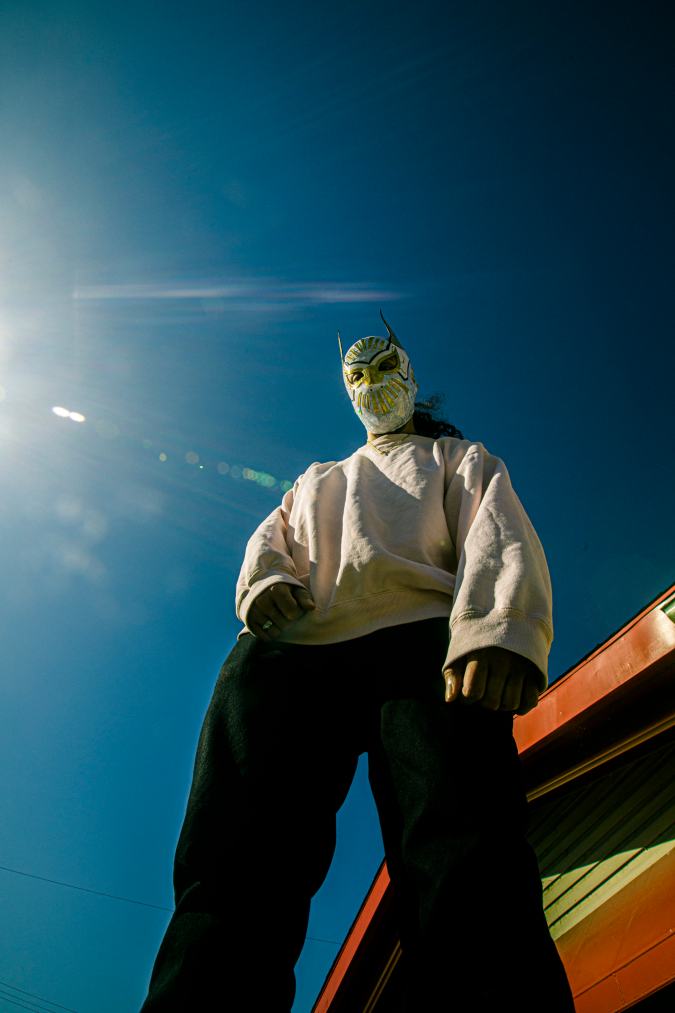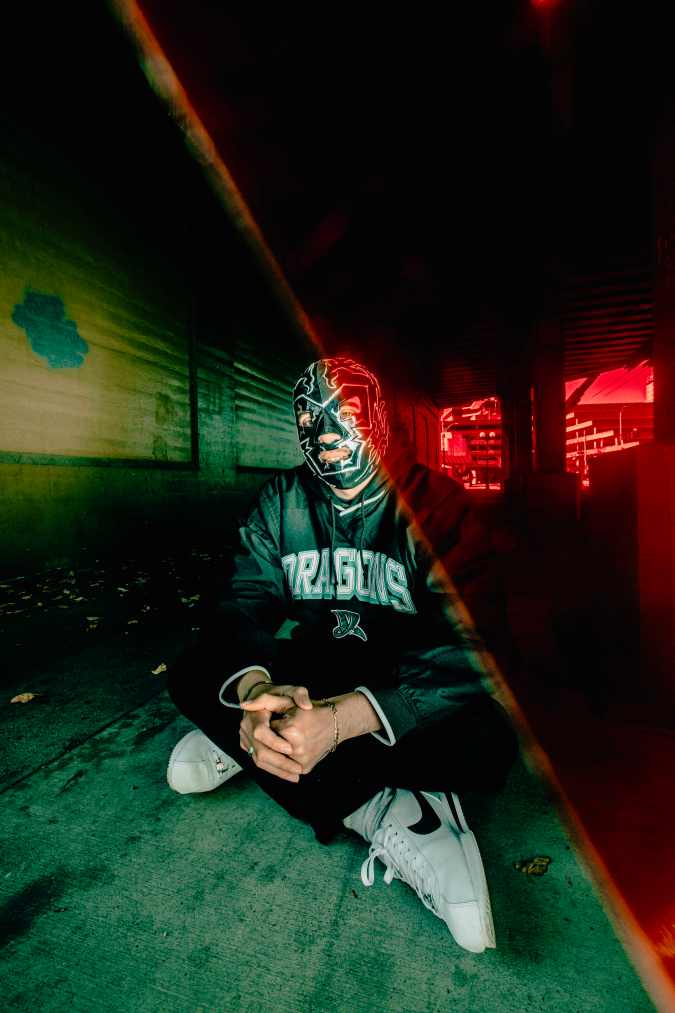For Cincinnati-based rapper Isai Morales, his statement luchador mask is about connecting to his Mexican heritage. From the moment he decided to make a custom, dragon-themed mask to represent his hometown’s baseball team this year, Morales has made the piece a key part of his look—a decision the Mexican-Panamanian artist says put him in an “introspective mindset” on his new album, El Lokote.
“I researched the reasons why luchadores wear masks (because not all [do]) but usually, there’s ones that wear it to symbolize what they’re fighting for,” Morales tells Remezcla. “I wanted to stay true to my culture and have something that makes me stand out a little bit.” While most of Morales’ Panamanian family members on his maternal side still reside in Panama, during childhood visits Morales would join local folkloric dance groups during Hispanic festivals.
I wanted to stay true to my culture.
“I’m definitely planning on going back to Panama for an extended stay at some point. I haven’t been back since 2015 so it’s long overdue,” he shares. “I can see myself doing a project where I focus on that part of me; with my mom being a salsa singer and very active in the Latino community in Ohio, we were always around a pretty diverse group of Latinos—which basically just means I’ve got a lot of tios, tias, and primos from everywhere.”
As a changemaker of the midwest’s micro enclave of Latin artists, Morales admits that he succumbed to naivete in his early content, leaning on the machista expectation to boast about money, women and cars. In 2019, while navigating his purpose in music, Morales briefly relocated to Los Angeles where he lived amongst an intimate artist community and began to notice the differences between mainstream and independent artists such as himself.
“A lot of the Latin artists [who] are in the industry right now are usually signed to major labels or have industry support and they’re making a certain ‘pop’ sound,” he observes. “There aren’t a lot of independent Latino artists and there needs to be more of that initiative.”

Embracing his independent streak on early projects, A Falta de Pan Tortillas, No Place Like Home and ISAI, Morales has long been recognized for his serene bars and an affinity for stoner culture. Unafraid to sing—whether using autotune or his natural tone—Morales often blends English with Spanish, especially when referencing his family. With a hypnotic soundscape, his debut album No Place Like Home eschewed the growing trap sound of 2018 and utilized Southern chopped-and-screwed mixing over Morales’ refined vocals.
A hypnotic soundscape + DIY approach.
Hands-on in his DIY approach, Morales returned to Cincinnati in early-2020 to curate live concerts until quarantine put his arrangements on hiatus. Instead of being forlorn about the sudden change of plans, Morales hit the studio to record El Lokote—an album that celebrates his career’s ascension and is transparent about the family conflicts that he witnessed as a child. On choppy interlude “Familia,” he claims his friends turned brothers as his “found family,” while he vents his frustrations about enduring a wayward childhood on “Breakingtradition.”
“[“Breakingtradition”] is basically a song about my father. We didn’t have the best relationship growing up and I saw a lot of things as a kid, but in order to grow from that, you have to forgive,” the 28 year-old says. “I wrote and recorded that song months before I had a conversation with him and squashed everything.”
While Morales is vocal about his healing process throughout the album’s lyrics, El Lokote’s visuals share the lighthearted side of the rapper’s family traditions, with things like his uncle’s Dayton Mexican restaurant, Salsas, in the kitchen-oriented music video for “Catalpa99.” On the bouncy track, featuring fellow Dayton rapper Zola182, the duo celebrate their hometown and humble upbringings.
“My great-uncle came to Dayton from Mexico in the 1980s and started a restaurant called Papitos, and that was the driving force to bring my family to the United States. Eventually, he sold the business to my uncle and turned it into a restaurant,” Morales says. “My family wanted me to do that video there—they’ve been asking me to promote Salsas online for the longest.” [laughs]

As Morales continues to harness his artistry, he reacquaints his purpose by rewatching Nacho Libre once every few months for inspiration. Sharing his gratitude for director Jared Hess—who also directed 2004 cult-favorite Napoleon Dynamite—Morales jokes that he was the “real-life Pedro” in high school and that both films are a reference to the originality he strives for.
He’s the ‘real-life Pedro’ from ‘Napoleon Dynamite.’
“I speak Spanish conversationally, but I try to showcase the life of growing up as a Mexican in the Midwest. [I try] incorporating things that are visually pleasing, but even with the masks, I put it all together in a package that looks and feels authentic to Mexican culture,” he says. “I didn’t feel like I had a good sound until El Lokote, where I truly feel like myself.”




